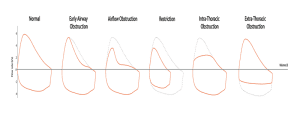At Care Net Consultants, we understand that taking care of your overall health can make a big difference in how you feel daily. Your lungs play a critical role in keeping you active and well, and just like the rest of your body, they benefit from good nutrition. Eating the right foods can help promote healthy lung function, reduce inflammation, and support respiratory health.
Let’s explore some foods and nutrients that are particularly beneficial for lung health and how they can be part of your daily diet.
Antioxidant-Rich Foods
Antioxidants are nutrients that help protect your cells from damage caused by harmful molecules called free radicals. Your lungs are constantly exposed to oxygen and environmental toxins, making them vulnerable to oxidative stress. By eating antioxidant-rich foods, you can help reduce the impact of oxidative stress on your lungs.
- Fruits and Vegetables: Brightly coloured fruits and vegetables, like berries, oranges, apples, carrots, and spinach, are packed with antioxidants such as vitamin C, beta-carotene, and flavonoids. These nutrients can help protect your lungs from irritation and damage. Try incorporating a variety of fruits and veggies into your meals each day, aiming for a colourful plate at every meal.
- Green Tea: Rich in antioxidants like catechins, green tea has anti-inflammatory properties that can improve lung function. Drinking a cup of green tea regularly can be a simple way to support lung health.
Omega-3 Fatty Acids
Omega-3 fatty acids are known for their powerful anti-inflammatory effects, and inflammation is often a problem for people with lung conditions like asthma or chronic obstructive pulmonary disease (COPD). These healthy fats can help reduce lung inflammation, making breathing easier.
- Fatty Fish: Fish like: salmon, sardines, and mackerel are excellent sources of omega-3 fatty acids. Eating fatty fish two to three times a week can help lower lung inflammation and improve overall respiratory function.
- Flaxseeds and Walnuts: If you prefer plant-based options, flaxseeds and walnuts are excellent sources of omega-3s. You can sprinkle flaxseeds on your cereal or salads and snack on walnuts throughout the day.
Foods Rich in Vitamin D
Vitamin D is essential for immune health, and studies have shown that a lack of vitamin D can worsen lung conditions. Ensuring you get enough vitamin D can help strengthen your lungs and improve respiratory function.
- Egg Yolks and Fortified Foods: Egg yolks, dairy products, and fortified plant-based milks are good sources of vitamin D. Try including these in your diet to support your lung health.
Stay Hydrated
Water is vital for every part of the body, including the lungs. Staying well-hydrated keeps the mucus in the lungs thin and easy to expel, which is especially important for people with conditions like COPD or asthma.
- Water and Herbal Teas: Aim to drink six to eight glasses of water a day. Herbal teas like peppermint or chamomile can be soothing and help you stay hydrated.
Taking care of your lung health starts with what you eat. Antioxidant-rich fruits and vegetables, omega-3 fatty acids, and foods rich in vitamin D can all help reduce inflammation, support lung function, and promote better respiratory health.
At Care Net Consultants, we believe that small changes to your diet can significantly improve your health. Incorporating these nutrient-rich foods into your meals can help protect your lungs and improve your quality of life.
If you have any questions or need more guidance, our team at Care Net Consultants is here to support you!




